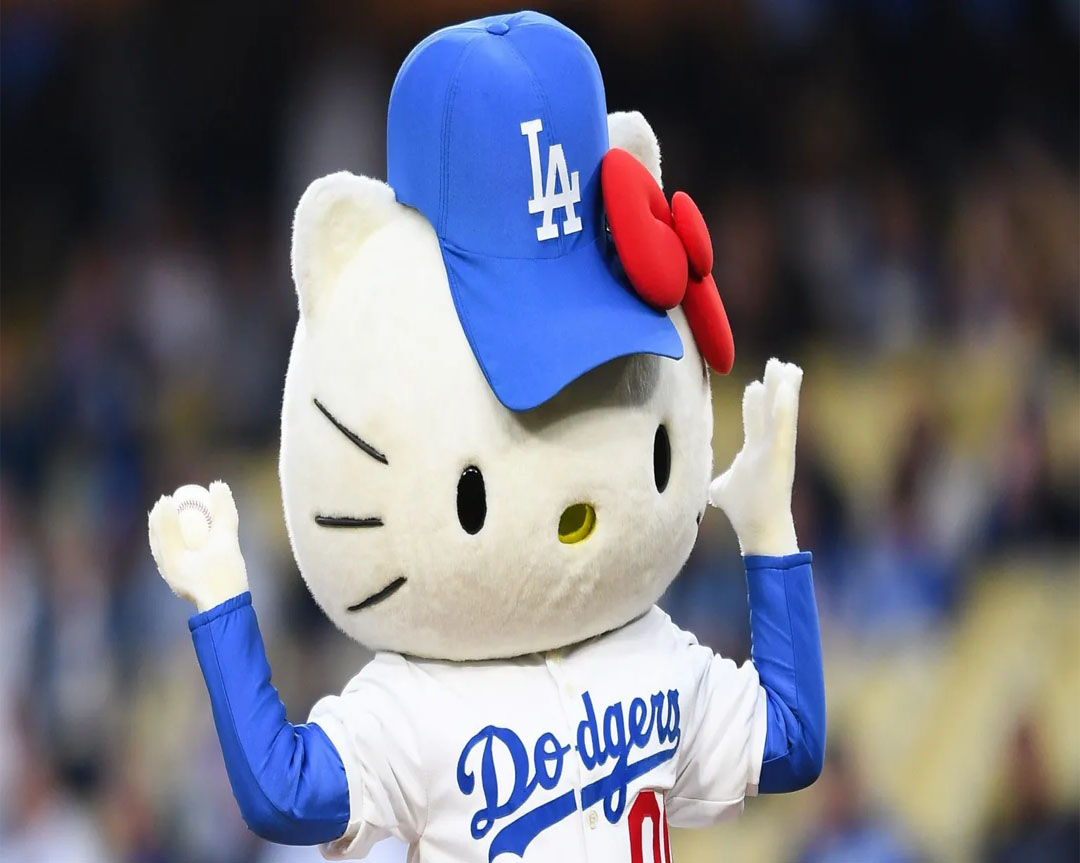Hello Kitty, arguably Japan's best loved creation, is celebrating her 50th anniversary.
But all has not always been well at Sanrio, the Japanese company behind the character. The business has been on a spectacular journey of financial peaks and valleys.
Hello Kitty has been ranked the second-highest grossing media franchise in the world behind Pokémon, and ahead of the likes of Mickey Mouse and Star Wars.
Underscoring her global fame, Britain's King Charles wished her a happy birthday during the state visit to the UK by Japan's Emperor and Empress in June.
In recent years though Sanrio had been struggling to make money, as interest in Hello Kitty waned.
Two previous surges in Sanrio sales, in 1999 and 2014, were both driven by the character's popularity. But these jumps in demand for the firm's products were not sustainable, says Yasuki Yoshioka of investment company SMBC Nikko.
"In the past, its performance had many ups and downs, as if it was on a rollercoaster ride," Mr Yoshioka says.
He is the grandson of the firm's founder, Shintaro Tsuji, and was just 31 at the time, making him the youngest chief executive of a listed Japanese company.
His grandfather then became Sanrio's chairman.
Under the younger Mr Tsuji's leadership, Sanrio changed its marketing strategy of its stable of other characters.
"It is not about lowering Hello Kitty's popularity but it is about boosting others' recognition," he says.
This resulted in Hello Kitty losing the position of Sanrio's most popular character.
According to a poll of customers, that spot is now held by Cinnamoroll - a blue-eyed white puppy with pink cheeks, long ears and a tail that looks like a Cinnamon roll.
Sanrio is also no longer just about cute characters.
If Hello Kitty is Japan's ambassador of cute, then angry red panda Aggressive Retsuko - or Aggretsuko - channels the frustrations of an ordinary working woman.
The character, which is popular among Gen Zers, first appeared in a cartoon series on Japan's TBS Television before it became a global hit on Netflix.
Another unconventional character is Gudetama, or "lazy egg", who is living with depression and fires out cold one-liners that reflect dark realities of life.
As well as diversifying its characters, Sanrio boosted its overseas marketing and is now tackling counterfeits more rigorously.
"We are now using artificial intelligence to detect fake products and to make removal requests," says Mr Tsuji.
For its marketing strategy, collaborations with major brands - including Starbucks, Crocs and the LA Dodgers baseball team - have been key, he added.
"In addition to our own promotion, by collaborating with global brands, we are trying to have our characters in the market throughout the year without many breaks."
In a society that puts so much emphasis on seniority, Mr Tsuji's surname was crucial to his ability to make major changes at Sanrio.
Almost a quarter of listed companies in Japan, like car makers Toyota and Suzuki and camera firm Canon, are managed by members of the family that founded them.
The reason is cultural, according to Professor Hokuto Dazai of Nagoya University of Commerce and Business.
In Japan, home to the world's oldest continuous monarchy, "there is strong recognition of families and family businesses," he says.
The master-servant relationship from the samurai period has transitioned into the relationship between founding families and their employees, and "historically commoners never fought over the top job".
"It is also because Japan has a smaller pool of professional executives to choose from," says Professor Dazai.
"Firms tend to look for their next boss internally, including founding family members."
Still, "it would be a lie if I said there was no pushback" from other managers and employees in the company, Mr Tsuji says.
He also says he clashed with his grandfather over how to run the company.
"But one day I realised that I was being arrogant, trying to convince someone 60 years senior," he says.
"After about a year, my grandfather told me to run the company as I see fit - that he will leave it up to me."
The new boss's revamp of the business has been paying off so far.
Within two years of the younger Tsuji becoming chief executive, Sanrio was profitable again, in what analyst Mr Yoshioka calls "a beautiful V-shaped recovery".
Its share price has risen tenfold since 2020 and the company now has a stock market valuation of more than a trillion yen ($6.5bn; £5bn). Source: BBC







































